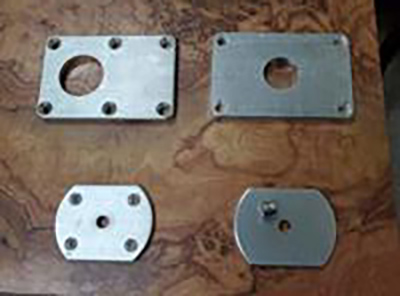Punch Channels in Florida: Steel & Aluminum Solutions for Construction
Punch channels, also known as punched channels, are essential components in Florida’s construction and infrastructure projects. These pre-drilled metal channels—made from durable steel and aluminum—provide versatility for framing, electrical systems, solar panel installations, and more. This guide covers types, sizes, applications, and how to avoid costly errors when using punched strut channels in Florida’s coastal and urban environments.
What Are Punch Channels?
Punch channels are metal rails with pre-drilled holes for bolts, screws, or fasteners. They streamline assembly in construction by eliminating the need for on-site drilling. Common materials include:
- Aluminum: Lightweight and corrosion-resistant, ideal for coastal areas like Miami and Tampa.
- Steel: High strength for heavy-duty applications like bridges or industrial frameworks.
Types of Punch Channels in Florida
1. Structural Pre-Punched Channel
Used in load-bearing frameworks, these channels feature standardized hole patterns for quick assembly.
2. Stainless Steel Strut Channel Punched
Resists rust in humid climates, perfect for outdoor electrical conduits or marine projects.
3. Aluminum Punching T Channel (Slotted Channel)
Lightweight and easy to cut, these are popular in solar panel mounts and HVAC systems.
4. Standard Metal Punched Channel
Galvanized steel channels for cost-effective indoor or dry-environment use.
Key Considerations for Punch Channels in Florida
1. Material Choice: Steel vs. Aluminum
- Aluminum punched channel: Best for coastal zones due to saltwater corrosion resistance.
- Steel: Suitable for inland projects like Orlando warehouses where strength is prioritized.
2. Punch Channel Sizes
Common aluminum punched channel sizes in Florida include:
- Depth: 1.5″ to 3″.
- Length: 10′ to 20′ (custom cuts available).
- Hole Spacing: 1″ to 6″ intervals.
3. Picket Spacing on Punch Channels
For railings or fences, maintain 1.5″–4″ gaps between pickets to meet Florida building codes and ensure safety.
3 Common Mistakes to Avoid with Punched Channels
1. Ignoring Corrosion Protection
In coastal cities like Jacksonville or Key West, untreated steel channels rust quickly. Opt for powder-coated aluminum or stainless steel.
2. Incorrect Hole Alignment
Misaligned holes delay projects. Double-check measurements before securing punched strut channels.
3. Overloading the Channel
Exceeding weight limits causes sagging or collapse. Verify load capacities with suppliers like Production Metal.
How to Punch Holes in Aluminum J Channel
For custom projects, follow these steps:
- Mark Hole Locations: Use a template for consistency.
- Drill Pilot Holes: Prevent metal warping with a 1/8″ drill bit.
- Use a Punch Tool: Lansing housing products like hydraulic punches ensure clean, burr-free holes.
Where to Find Punch Channels in Florida
1. Local Suppliers
Search “punch channel near me” to find vendors like Tampa Metal Supply or Miami Aluminum Fabricators.
2. Wholesale Options
Find aluminum channel punched wholesale through distributors like Production Metal, offering bulk discounts for contractors.
3. Custom Orders
Need aluminum channel cut to size? Many Florida suppliers provide CNC cutting services for precise fits.
FAQs About Punch Channels
Q: What’s the lifespan of aluminum punch channels in Florida?
A: Up to 30+ years with proper coatings, even in salty air.
Q: Can I reuse punched channels?
A: Yes, if undamaged! Clean and inspect for corrosion first.
Q: Are there Florida-specific codes for picket spacing?
A: Yes—most counties follow FBC (Florida Building Code) guidelines for railings.
Q: How do I prevent galvanic corrosion with steel punch channels?
A: Use insulating washers between steel and aluminum parts.
Conclusion: Optimize Your Florida Projects with Punch Channels
From Miami high-rises to Orlando solar farms, punched channels offer efficient, durable solutions for Florida’s construction needs. Prioritize:
- Material: Choose aluminum punched channels for coastal durability.
- Sizing: Match channel depth and hole spacing to your project.
- Suppliers: Partner with trusted vendors like Production Metal for quality and compliance.
Avoid common pitfalls like poor hole alignment or inadequate corrosion protection, and always verify local building codes.



